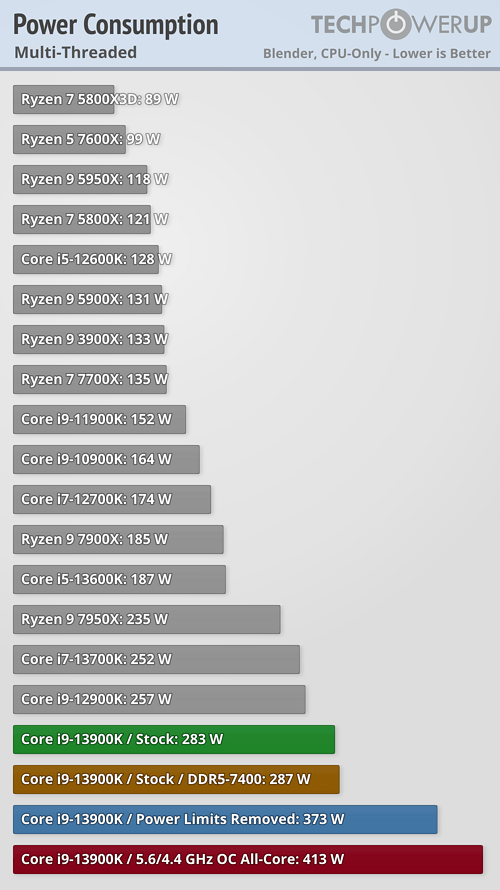Im not sure why even with the most almost pathetic release in generations ( being 14th ) you continue to champion Intel..Look at the title of this review, does it say review of a system? This is a CPU review which means that you have to isolate everything as much as possible to only show differences that actually come from the CPU, and not from mobo settings or anything else.
These mobos will still support 14th gen, out of 10 mobos with the default settings only one pushed to 200W while one was as low as 65W, 7 out of 10 stuck with the suggested TDP of 125W.
Yes, these are Budget boards, that is the point we are making, the CPU will run differently depending on the mobo you use.
(You can find the video on youtube by using the title under the pic. )

Quote,link, something?!
Why?! What for?! Just so you can drag this out forever?!
They are the same thing.
So you left out a very important fact, I stated that fact and now you are calling this putting words in your mouth?! Seriously?!
Maybe it would be significant if it started with the 14th gen but it started many gens ago now.
The 13th gen gains this 1% as well, so the final difference is no different.
Ive lost count of the amount of time youve attacked me ( shown some funky graph about how intel are doing this or that ) on my support for AMD and just pointing out simple truths about Intel ..
Yet even now you try to champion them and justify these terrible decisions Intel make
Call a spade a spade !!
14th is a joke on a dead platform that should never have been released and should not be bought under any circumstance ..
It almost feels like a Nvidia situation ( where they think their poo doesnt stink and can do what they want and customer will buy it ) difference is Intel has NOTHING to win on ( atleast Nvidia have DLSS RT and the 4090 )
If people keep supporting these rubbish products Intel will learn nothing and still ( in this case ) get pushed completely out of the CPU market !!
That is very bad for consumers then because ( yes i like my AMD products but ) AMD will just take the market in the direction they want because they have NO competition !!






